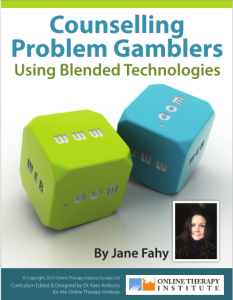We all get used to our own government’s attitudes to poor mental health, and with apologies for a fairly sweeping statement, those attitudes generally fall short of the ideal. A common theme is that if you have a broken leg, you get treatment – but if you have a broken mind, you are sidelined, often feared, and usually facing an uphill struggle to gain the treatment you need.
 But what if you live in a country where the concept of mental health and the attention it deserves is so new that finding the route to satisfactory help is something of a mystery to you?
But what if you live in a country where the concept of mental health and the attention it deserves is so new that finding the route to satisfactory help is something of a mystery to you?
My company, the Online Therapy Institute, is proud to work with a small organisation in Kosovo – and will soon be working with a similar organisation in Albania – in bringing safe mental health assistance to those people living in these post-war countries. Many places in Eastern Europe simply don’t have the infrastructure that countries such as the UK and USA have in place for treating mental health issues – however seemingly broken those infrastructures may be.
But what such countries in Eastern Europe DO have is a strong will to make things better for their young populations, and they also have the Internet. The issues these young populations face are many and diverse, particularly in the years after the war ended and as the countries rebuild.
Foundation Together Kosova is a small non-profit organisation with the cheering slogan “Nuk de Vet!” (You Are Not Alone!). To reach out to their citizens suffering with mental health problems, they run a forum-based website and chat service. They ensure their volunteer mental health professionals are trained to work in the online environment, and are about to hold a second conference day in Pristina (the capital of Kosova) to spread awareness of mental health issues, particularly those faced by young people.
I’m telling you all this because as part of World Mental Health Day, this small charity deserves attention for quietly getting on with mental health assistance in their part of the world. In my often daily interactions with the volunteers as they work through my training programme, I hear their dedication and their commitment to “getting it right” in a country where there are few ground rules for counselling and therapeutic services – let alone online services.
The Internet has transformed mental health services – most counselling and psychotherapy organisations (among those in other helping professions) have an online presence, and we are now very used to Googling our symptoms of distress before we visit our medical practitioner. That a small charity in an often overlooked country is there at the forefront of online mental health – not only to make a difference to the people but also to help shape the mental health services of the future – is something we as a world can be proud of.


